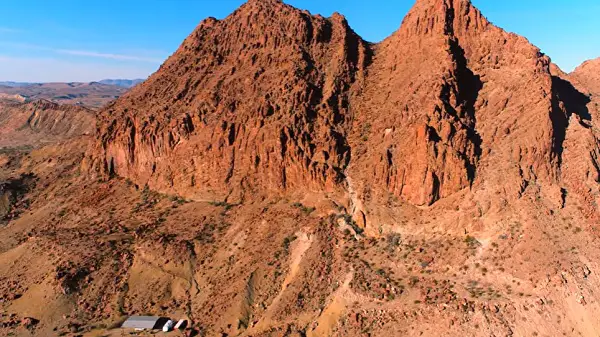
If you’re planning a trip to Texas anytime soon, you may be wondering if it is permissible to fly your hobby drone while you visit—I’ve done some research, and here’s what I found.
It is perfectly legal to fly your drone in the state of Texas, provided that you follow the state and local FAA’s recreational model aircraft rules for hobbyists. However, you do need to first register your drone if it weighs more than 0.55 lbs and you will need to pay a $5 registration fee.
Before your drone hits the skies, you will first need to register your drone under the FAA’s rules and regulations.
Keep reading to find out exactly how to do this, as well as learn more about the state drone laws in Texas and what this will mean for you as a hobbyist.
You Have To Register Your Drone in Texas With The FAA
If your drone weighs more than 0.55 lbs (250g) or less than 55 lbs (25kg) then you will be required to register your drone with the FAA. I wrote a full guide that walks you through how to register your drone with the FAA here. So if you haven’t registered your drone yet, make sure you go through that guide before you keep reading.
It is important to bear in mind that failing to do the above will result in you being subject to civil and criminal penalties if you meet the criteria to register your drone and fail to do so.
If I had the choice between paying $5 or facing severe criminal penalties, I know which option I would choose every time!
Important note: If your drone weighs less than 0.55 lbs (250g) then don’t waste your time registering your drone. According to the FAA, you only need to register drones that weigh above 250 grams. With that said, you still need to abide by the Texas county rules and regulations. So make sure you keep reading.
Frequently asked questions about registering your drone in Texas:
- How old do I need to be to register? 13 years of age or older (if the owner is less than 13 years of age, a person 13 years of age or older must register the drone).
- How do I register a drone that weighs over 55 lbs (25kg)? For this, you will need to follow a slightly different application process, known as the N-number registration. Click here for the link to do so.
- What happens if I fail to register my drone? You will be subject to criminal and civil penalties, which could include a hefty fine.
- How long will the registration process take? Not long at all. In fact, you should receive your drone license immediately.
Now that you have successfully registered your drone, you’re probably dying to take to the skies!
Before you get too excited, I would strongly recommend you keep reading to find out exactly what you can and cannot do with your drone in the state of Texas. After all, the last place you want to end up is in the Texas County jail!
8 Texas State-Wide Drone Laws
These are laws created for drones that are applicable to the entire state of Texas and were originally drafted by the Texas Legislature.
Law 01: Only Law Enforcement May Use UAS For Private Property Images.
This law permits telecommunications providers to utilize UAS in order to capture images. However, UAS may only be used by law enforcement officials. This is for the purposes of taking pictures of properties that are within 2.5 miles of the border of the United States, therefore in the interests of border security. Additionally, UAS can be used by insurance companies for relevant purposes, as long as this is authorized by the FAA.
This law is named SB 840 // 2017.
Law 02. UAS is Not Permitted Over Correctional and Detention Facilities.
This one is pretty self-explanatory, but basically this means you cannot fly your drone over a prison or any other correctional facility. Additionally, you cannot fly your drone over a sports venue except under certain circumstances.
This law is named HB 1424 // 2017.
Law 03. Local Governments May Not Regulate UAS Unless Specified.
This law prohibits local governments from regulating UAS except under special circumstances and when the UAS is used by the locality.
This law is named HB 1643 // 2017.
Law 04. Certain Professions May Capture Relevant Images.
This law permits individuals in certain professions to capture images used in that particular profession using UAS as long as no person is identifiable in the image.
This law is named HB 2167 // 2015.
Law 05. You May Not Operate UAS Over Critical Infrastructure.
This law states that it is a Class B misdemeanour to operate UAS over what is known as a critical infrastructure facility. This applies if the UAS is not more than 400 feet off the ground.
This also includes petroleum refineries, electrical infrastructure, telecoms infrastructure and pretty much anything big and important that the state generally does not want you to crash a drone into or take pictures of.
This law is named HB 1481 // 2015.
Law 06. 19 Lawful uses For Your Drone.
This law details the 19 additional lawful uses for your drone, including their use in the following:
- Airspace used as an FAA test site.
- Use in connection with a valid search warrant.
- Use for oil pipeline safety and rig protection.
This law also creates two additional crimes:
- The illegal use of an unmanned aircraft to capture images.
- The offense of possessing or distrubiting the image.
This law is named HB 912 // 2013.
Law 07. You May Not Use Your Drone to Photograph Wildlife Without a Permit.
This law states that you may not use your drone to hunt, capture, take, count or simply photograph any wildlife. The only exception to this is if you have an Aerial Management Permit (AMP) and a Land Owner Authorization (LOA).
This law is named Texas Parks & Wildlife Policy.
Law 08. Drones Are Not Allowed in Texas State Parks Without a Permit.
Drone are not permitted for use in Texas State Parks unless you have a permit. There is an exception in two parks that have specified zones for flying remote-controlled aircraft (drones included):
- Lake Whitney.
- San Angelo.
However, you can request a recording permit for your drone at any park as long as you let them know. Also, note that this may take a few weeks in order for your request to be reviewed.
This law is named Texas Parks & Wildlife Policy
If you do know anyone operating their drone commercially, you should know that the laws are subject to the FAA’s Part 107 rules. If you would like to learn more about the certification process, check out this free guide.
That covers all of the important state drone laws that you need to be aware of in order to fly safely. Next, let’s focus on laws that apply locally to drone pilots.
Texas Local City Drone Laws
The Texas Local City Drone Laws have been created specifically for each local city to adhere to and should be followed accordingly.
City of Austin, Texas.
Areas around the City of Austin where UAS flight is restricted:
- Any emergency flight area.
- Austin-Bergstrom International Airport (ABIA) *
- Camp Mabry Military Base
- Circuit of the Americas *
- Local bodies of water and power stations.
- Darrell K Royal-Texas Memorial Stadium **
- Texas Capital Grounds
- Texas State Parks (if permission has been granted).
* There is a No-fly-zone (NFZ) in-place within a five-mile radius of all airports and this includes the one listed above.
**A temporary flight restriction (TFR) is a temporary action that restricts aircraft within a three-mile radius of a certain area. A TFR is issued during some sports events and special visits.
City of Houston, Texas.
Flying your drone in Houston follows the same rules that the FAA has stipulated for hobbyist drones. However, what is important to note is that drone operators are no longer required to contact air traffic control when flying within five miles of an airport.
Here’s a look at some of the incredible drone footage you can expect to view in Texas:
City of Dallas, Texas.
It is important to note that any use of your drone, whether it be hobbyist or other, is illegal. This is due to the fact that the area is designated as a Class B airspace. Even in areas where hobbyist use is allowed, those drones can’t fly above 400 feet. They must also be within eyesight of the person flying the drone and not fly over super busy or populated locations.
If you would like to learn more, you can watch this highly informative Youtube video:
Texas Drone Laws That Are Pending
New drone laws are being implemented all the time! With that being said, here are a couple of noteworthy drone laws that may be passed on:
- SB838 – Drone Delivery. This one could completely change the game when it comes to online shopping and delivery! This law would allow drones to take pictures of private property as well as individuals, so long as it is in connection consumer delivery operations.
- HB3238 – State Preemption. This law would prohibit cities and other municipalities within the state of Texas from making their own drone regulations.
If you would like to keep up to date with other drone laws, then be sure to check the Drone State Law website regularly.
Final Thoughts
Obviously there is more to this than what is stated above, but in general, the FAA regulations and privacy laws to do with drones in Texas should have you covered. The other laws are mostly aimed at empowering particular people such as law officials to use their drones for purposes that regular people would not be permitted to.
My last piece of advice to you would be to join or consult with a local flying club in the area. The reason being, members of these clubs typically have good relationships with local FAA representatives, meaning they will have firsthand knowledge of where you can and cannot fly your drone.
